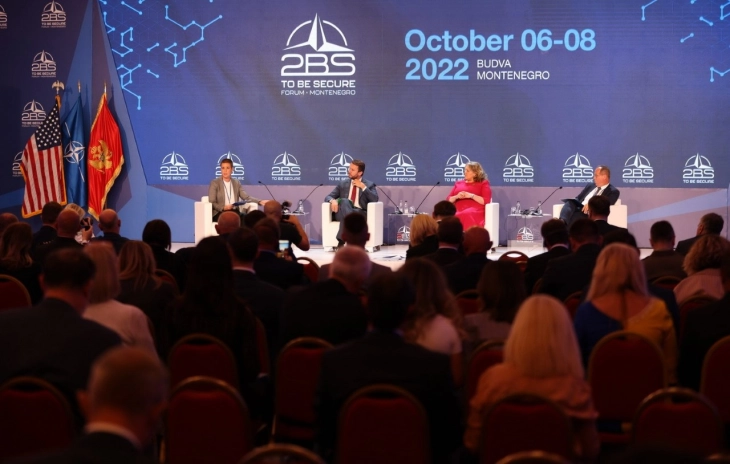Petrovska: Resolving open issues in Balkans key to common security

Skopje, 7 October 2022 (MIA) – At the last summit in Madrid, which was very important at this critical time, NATO said that every inch of its territory is important and, also, that we are strengthening our capacities to deter and defend ourselves, Defense Minister Slavjanka Petrovska told the 2BS (To Be Secure) Forum in the Montenegrin city of Budva, during Friday’s panel titled “NATO Ready for the Future – Strong and Resilient”.
The discussion focused on NATO's role in current security developments, and the goal of responding to challenges and proving that it is capable of deterring and defending, the Ministry of Defense said in a press release.
Petrovska, who addressed the panel alongside Montenegrin Defense Minister Raško Konjević and Sifet Podžić, Minister of Defense of BiH, spoke about ways to reach a solution for all open issues in the Balkans.
The conclusion of the discussion, the Ministry points out, is that the only guarantee for a European and prosperous future for the citizens of the Western Balkans is dialogue and cooperation.
“When the invasion started on February 24 this year, people in my country asked if we were safe, to which I said – yes, we are safe because we are a NATO member country. The well-known Prespa Agreement resolved a dispute that lasted more than 20 years between Greece and North Macedonia. The signing of the Prespa Agreement turned out to be the biggest investment in the security of our country. My message is that at a certain point, political leaders must make major political decisions that will mean an investment in the future of the countries,” said Petrovska.
Defense Ministers who participated in the panel also tackled current challenges facing the transatlantic community, regional security challenges with particular emphasis on the consequences of the Russian military aggression against Ukraine, increasing the resilience of democracies, as well as priorities for action in transatlantic relations.







